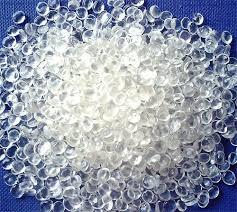Inquire
Vinyl Acetate Market forecast highlighting key manufacturers and their production strategies

The Vinyl Acetate Market forecast highlighting key manufacturers and their production strategies examines how leading companies drive industrial growth and global competitiveness. Vinyl acetate, a vital monomer used in polyvinyl acetate (PVA), ethylene vinyl acetate (EVA), and polyvinyl alcohol (PVOH), serves adhesives, coatings, packaging, construction, automotive, and specialty industries. Analyzing manufacturer strategies, production practices, and capacity expansion offers insight into market growth potential and investment opportunities across regions.
Key Manufacturers Overview
Major manufacturers dominate the vinyl acetate market by leveraging advanced production technologies, sustainable processes, and strategic expansions. Companies focus on capacity optimization, quality assurance, and innovative derivative development to meet industrial demand. Leading players continuously evaluate emerging applications, regional market trends, and technological advancements to strengthen competitiveness, enhance production efficiency, and maintain global supply consistency.
Production Strategies and Capacity Expansion
Production strategies are central to manufacturer competitiveness. Capacity expansion ensures meeting rising demand in adhesives, coatings, packaging, construction, and automotive sectors. Investments in advanced polymerization, energy-efficient processes, and automation improve operational efficiency, reduce costs, and support high-quality derivative production. Manufacturers optimize capacity allocation across regions to balance supply and meet market demand effectively.
Asia-Pacific Manufacturing Strategies
Asia-Pacific is a critical production hub for vinyl acetate derivatives. Key manufacturers focus on expanding facilities in China, India, Japan, and South Korea to serve growing industrial demand. Strategies include adopting advanced technologies, optimizing raw material utilization, and enhancing supply chain efficiency. Regional production aligns with industrial growth in adhesives, coatings, packaging, and construction, providing manufacturers with competitive advantages and market expansion opportunities.
North America Manufacturing Strategies
In North America, manufacturers emphasize high-performance derivative production, technological innovation, and operational efficiency. Advanced polymerization techniques, automation, and energy-efficient processes enhance product quality and reduce production costs. Strategic investments in R&D and production infrastructure support emerging applications in adhesives, coatings, packaging, automotive, and specialty industries, ensuring alignment with regional industrial demand and global competitiveness.
Europe Manufacturing Strategies
European manufacturers prioritize sustainability, regulatory compliance, and eco-friendly production practices. Germany, France, Italy, and the United Kingdom focus on low-VOC adhesives, recyclable packaging, and energy-efficient coatings. Production strategies involve technological adoption, process optimization, and collaboration with local suppliers and R&D centers. Sustainable production practices enhance product quality, ensure compliance, and support market expansion across Europe and globally.
Technological Adoption
Technological adoption is a key component of production strategies. Advanced polymerization, digital monitoring, automation, and smart manufacturing systems improve yield, reduce waste, and enhance quality. Innovations in catalyst technology and process efficiency enable the development of specialized PVA, EVA, and PVOH derivatives for industrial and emerging applications. Technology integration supports production optimization, cost management, and global market competitiveness.
Supply Chain Management
Efficient supply chain management underpins production strategies and market success. Reliable sourcing of acetic acid, ethylene, and catalysts ensures uninterrupted production. Strategic inventory management, regional distribution networks, and logistical planning reduce operational risks and maintain supply reliability. Manufacturers coordinating supply chains effectively can meet industrial demand, optimize costs, and strengthen global presence.
Sustainability and Compliance Integration
Integrating sustainability and regulatory compliance into production strategies is critical for long-term growth. Eco-friendly processes, low-emission production, and recyclable derivatives ensure adherence to environmental regulations. Manufacturers incorporating sustainability improve brand reputation, gain market acceptance, and support industrial demand. Sustainable production practices align with global trends, enhancing competitiveness and fostering investment opportunities.
Emerging Applications Influencing Production
Emerging applications in electronics, renewable energy, medical devices, and specialty polymers influence production strategies. Manufacturers invest in R&D, specialized derivative development, and tailored production processes to capture these high-growth markets. Understanding industrial trends and demand patterns ensures manufacturers can develop suitable products, optimize production, and maintain competitiveness in dynamic global markets.
Strategic Collaborations and Partnerships
Strategic collaborations, joint ventures, and partnerships are integral to manufacturer strategies. Access to new technologies, production methodologies, and regional expertise enables optimized operations and market expansion. Partnerships enhance R&D capabilities, facilitate entry into emerging applications, and provide a platform for sharing best practices, strengthening manufacturers’ position in the competitive vinyl acetate market.
Future Outlook
The forecast for the vinyl acetate market suggests continued growth driven by key manufacturers’ production strategies, technological innovations, and emerging applications. Asia-Pacific will remain a dominant production and consumption region, North America will focus on high-performance derivatives, and Europe will emphasize sustainable production. Manufacturers implementing effective production strategies, technological adoption, and market expansion plans are well-positioned for long-term growth and competitiveness.
Conclusion
The vinyl acetate market forecast highlighting key manufacturers and their production strategies emphasizes the importance of capacity expansion, technological innovation, and sustainability. PVA, EVA, and PVOH derivatives are essential in adhesives, coatings, packaging, construction, automotive, and specialty industries. Manufacturers employing advanced production strategies, efficient supply chain management, and sustainable practices can meet industrial demand, optimize operations, and achieve global competitiveness in the vinyl acetate market.
- Managerial Effectiveness!
- Future and Predictions
- Motivatinal / Inspiring
- Other
- Entrepreneurship
- Mentoring & Guidance
- Marketing
- Networking
- HR & Recruiting
- Literature
- Shopping
- Career Management & Advancement


 SkillClick
SkillClick